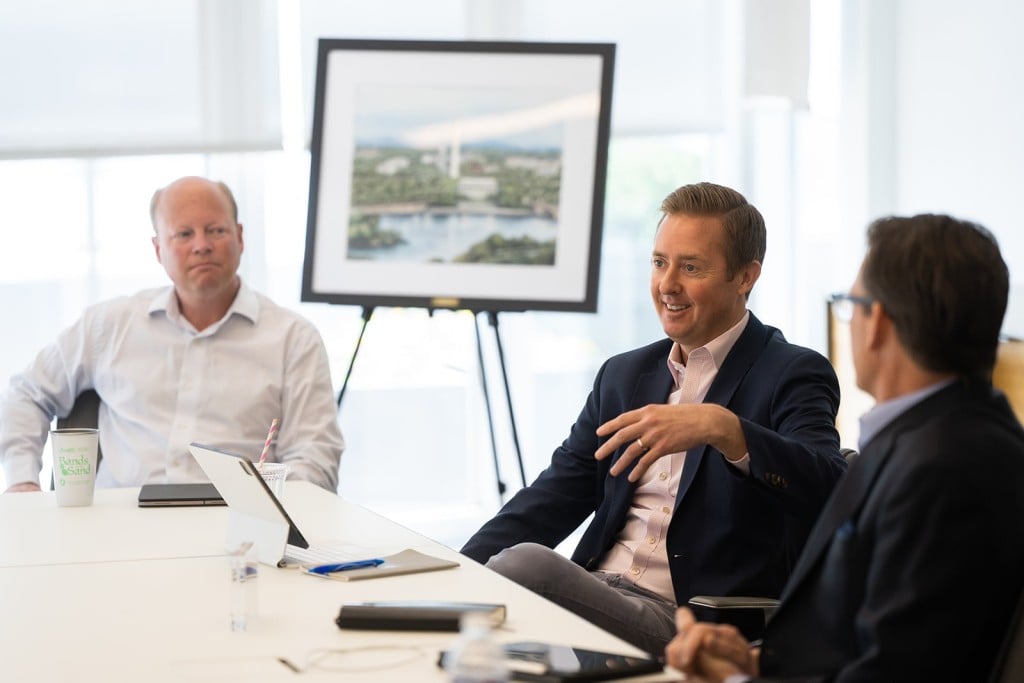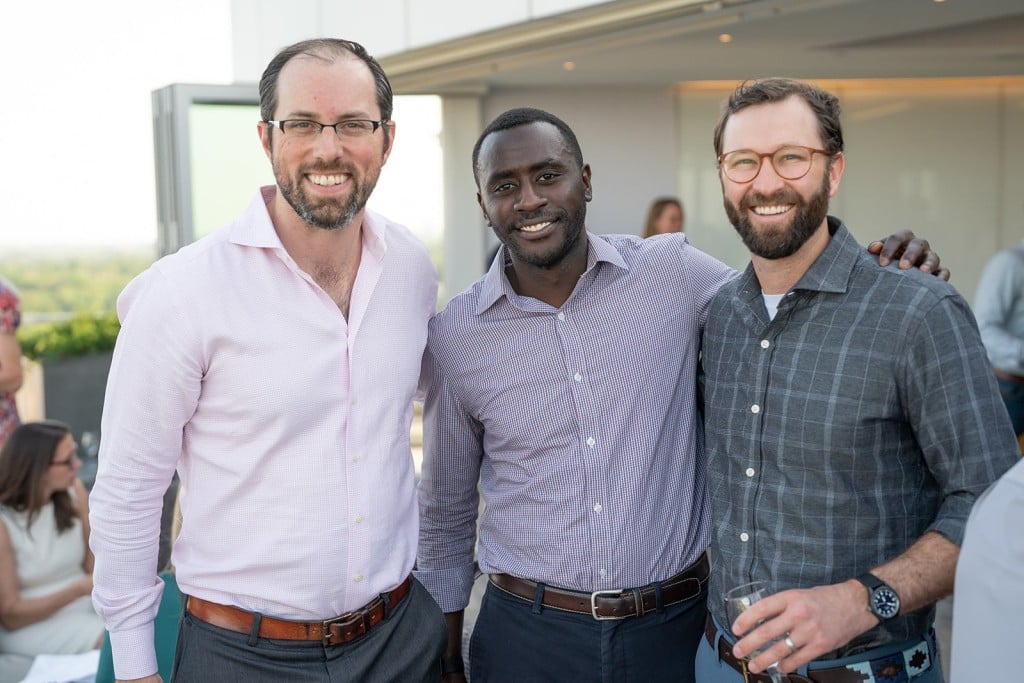Contributors
Related Articles
Stay Up To Date
Something has gone wrong, check that all fields have been filled in correctly. If you have adblock, disable it.
The form was sent successfully
For much of the investment world, diversification has become a kind of orthodoxy—accepted, repeated, and rarely interrogated. Its logic is elegant in its simplicity: spread risk broadly, and you reduce the potential for loss. But as is often the case in capital markets, simplicity can obscure nuance.
At Sands Capital, we approach this differently. We believe that true risk lies not in concentration but in insufficient knowledge. Not in holding too few positions, but in holding too many with too little understanding. In our view, a portfolio is not diversified simply because it is populated with numerous names; it is diversified when each position reflects differentiated insight and durable value creation.
That is why we invest with intention—and with concentration.
Rethinking Risk in a Power-Law World
Public equity markets are asymmetric. A relatively small number of companies account for the vast majority of long-term wealth creation.1 This is not just an academic observation; it is a defining characteristic of modern markets. In such an environment, breadth for its own sake can dilute exposure to the very outcomes that matter most.
Concentration, when practiced with discipline, can be a rational and elegant response to this reality. It allows capital to be allocated purposefully—toward the businesses that a manager believes are most likely to deliver outsized value over time. Not as a bet, but as the natural consequence of research-intensive, conviction-driven investing.
This is not about idiosyncratic boldness. It is about clarity. In a world awash with information and volatility, focus can be a virtue. And focus begins with knowing exactly what one owns—and why.
The Depth That Enables Conviction
Conviction is not a sentiment; it is the product of rigorous inquiry and creative thinking. Our team invests substantial time and resources developing what we intend to be a deep, differentiated understanding of each company we own. We do not diversify away from that effort, what our founder facetiously referred to as deworsification. Instead, we scale it, with purpose.
Position sizing, in our portfolios, is not a function of market cap or index weight. It is a direct reflection of the confidence we have in a company’s long-term potential and the quality of our research. Each business earns its place—and its weight—through a process that values insight over convention.
This approach results in portfolios that look markedly different from common benchmarks. We consider that a strength, not a liability. When executed with care and a long-term orientation, concentration becomes a more accurate expression of our intellectual capital—and, in our view, a more potent tool for value creation.
Volatility Versus Risk: A Crucial Distinction
To some, concentration raises concerns about volatility. That is a fair observation, but it conflates short-term price movement with true investment risk. We are less concerned with the day-to-day fluctuations of market sentiment than we are with the long arc of enterprise value creation.
We define risk not as volatility, but as the potential for permanent capital loss. On that dimension, we believe that a diversified portfolio of lightly researched, low-conviction holdings may be far riskier than one built on a foundation of deep insight and selective exposure.
Our clients—most of whom are long-term institutional stewards of capital—understand this distinction. They recognize that their advantage lies not in reacting to volatility, but in embracing strategies that harness it thoughtfully.
Designed for Durability
Concentrated, conviction-weighted portfolios are not constructed for comfort. They are constructed for clarity and compounding. In a world where innovation drives increasingly uneven outcomes, a focused portfolio offers the potential for meaningful participation in the companies we believe matter most.
This approach requires patience, discipline, and the willingness to endure periods of relative underperformance in pursuit of long-term alpha. It also requires trust—between allocator and manager—that the process behind the portfolio is sound, repeatable, and grounded in a clear investment philosophy.
At Sands Capital, we have built our process around those principles. We invest in a select group of businesses that we believe have the potential to be long-term wealth creators, and we size our positions to reflect the strength of our convictions. We are not seeking exposure; we are seeking outcomes.
The Courage to Be Selective
Concentration is not a rejection of diversification; it is a refinement of it. It demands greater rigor, deeper knowledge, creativity, and a willingness to be selective. But for those with a long time horizon and a commitment to thoughtful capital allocation, it offers something rare: the opportunity to work more meaningfully with some of the world’s leading businesses.
In an investment landscape increasingly defined by scale, speed, and sameness, we believe focus is a source of differentiation, and, ultimately, of adding value for clients.
1 https://www.sciencedirect.com/science/article/abs/pii/S0304405X18301521?via%3Dihub
Disclosures:
The views expressed are the opinion of Sands Capital and are not intended as a forecast, a guarantee of future results, investment recommendations or an offer to buy or sell any securities. The views expressed were current as of the date indicated and are subject to change.
This material may contain forward-looking statements, which are subject to uncertainty and contingencies outside of Sands Capital’s control. Readers should not place undue reliance upon these forward-looking statements. There is no guarantee that Sands Capital will meet its stated goals. Past performance is not indicative of future results.
All investments are subject to market risk, including the possible loss of principal. Recent tariff announcements may add to this risk, creating additional economic uncertainty and potentially affecting the value of certain investments. Tariffs can impact various sectors differently, leading to changes in market dynamics and investment performance. The growth style of investing may become out of favor, which may result in periods of underperformance. The strategies are concentrated in a limited number of holdings. As a result, poor performance by a single large holding of a strategy would adversely affect its performance more than if the strategy were invested in a larger number of companies. International investments can be riskier than US investments due to the adverse effects of currency exchange rates, differences in market structure and liquidity, as well as specific country, regional and economic developments. Investments in emerging markets are subject to abrupt and severe price declines. The economic and political structures of developing nations, in most cases, do not compare favorably with the US or other developed countries in terms of wealth and stability, and their financial markets often lack liquidity. Because of this concentration in rapidly developing economies in a limited geographic area, emerging markets strategies involve a high degree of risk. The strategies may experience losses as they are subject to equity securities risk, market and issuer risk, selection risk, growth style risk, concentration risk, currency exchange risk, foreign company risk, derivatives risk and other economic risks that may influence returns.
There is no guarantee that owning securities of companies meeting the six criteria will cause the portfolio to outperform its benchmark or index.
Differences in account size, timing of transactions, and market conditions prevailing at the time of investment may lead to different results, and clients may lose money.
References to “we,” “us,” “our,” and “Sands Capital” refer collectively to Sands Capital Management, LLC, which provides investment advisory services with respect to Sands Capital’s public market investment strategies, and Sands Capital Alternatives, LLC, which provides investment advisory services with respect to Sands Capital’s private market investment strategies, which are available only to qualified investors. As the context requires, the term “Sands Capital” may refer to such entities individually or collectively. As of October 1, 2021, the firm was redefined to be the combination of Sands Capital Management, LLC and Sands Capital Alternatives, LLC (previously known as Sands Capital Ventures, LLC). The two investment advisers are combined to be one firm and are doing business as Sands Capital. Sands Capital operates as a distinct business organization, retains discretion over the assets between the two registered investment advisers, and has autonomy over the total investment decision-making process.
This communication is for informational purposes only and does not constitute an offer, invitation, or recommendation to buy, sell, subscribe for, or issue any securities. The material is based on information that we consider correct, and any estimates, opinions, conclusions, or recommendations contained in this communication are reasonably held or made at the time of compilation. However, no warranty is made as to the accuracy or reliability of any estimates, opinions, conclusions, or recommendations. It should not be construed as investment, legal, or tax advice and may not be reproduced or distributed to any person.
Notice for non-US Investors.













